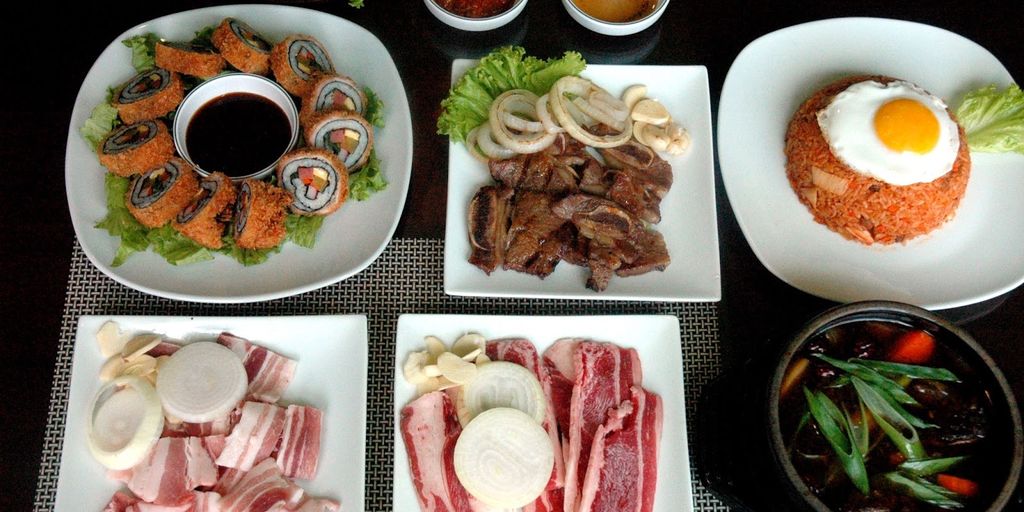
Experience Busan’s rich cultural heritage by immersing yourself in the traditional tea houses of this vibrant city. Busan tea houses offer a unique blend of ancient tradition and modern elegance, creating a serene ambiance that soothes the soul. Discover the enchanting world of Busan traditional Korean tea houses and immerse yourself in Korean culture. From the rituals of tea ceremonies to the harmony of flavors, you can experience Busan’s rich cultural heritage and its vibrant tea culture.
Key Takeaways
- Busan’s traditional tea houses combine ancient traditions with modern elegance, offering a unique cultural experience.
- Visitors can participate in tea ceremonies to experience the art and culture of Korean tea firsthand.
- Each tea house in Busan offers a unique specialty, from green tea with traditional sweets to organic green tea with local fruits.
- The serene ambiance of Busan’s tea houses provides an escape from the hustle and bustle of city life.
- Respecting local customs and cultural practices is essential when visiting Busan’s tea houses.
Discovering Hidden Gems: Busan’s Best Traditional Tea Houses
Explore the world of tea as you indulge in Busan’s traditional tea houses, each one offering a unique experience. From peaceful gardens to stunning ocean views, each tea house is a hidden gem waiting to be discovered.
Take a moment to appreciate the intricate details of the tea house’s decor, which reflect the city’s cultural heritage. From the delicate tea sets on display to the ornate furnishings, everything has a story to tell.
Haedong Myeongga Traditional Tea Culture Center
This tea house in Haeundae-gu is famous for its green tea served with traditional Korean sweets. The serene surroundings make it a perfect spot to relax and enjoy a cup of tea.
Hwangnyongsa Tea House
Located in Busanjin-gu, this tea house offers organic green tea with local fruits. The combination of flavors is both refreshing and unique.
Jejuga Tea House
In Suyeong-gu, you’ll find Jejuga Tea House, known for its Jeju Island green tea with honey. The sweet and smooth taste of the tea is something you won’t want to miss.
The Art of Korean Tea Ceremonies
What to Expect in a Tea Ceremony
Embrace the artful rituals of Korean tea ceremonies, a centuries-old tradition cherished for its grace and mindfulness. Tea ceremonies are an essential part of Korean culture, elevating the act of drinking tea to a meditative and transformative experience. By uncovering the art of tea ceremonies, you can delve deeper into Busan’s tea culture and appreciate the beauty of its traditions.
The Rituals and Their Meanings
The Korean tea ceremony is an intricate process involving careful preparation, brewing, and serving of traditional tea. Each step is executed with intention and grace, from selecting the right tools to measuring the tea leaves and water ratios precisely. Throughout the ceremony, the tea master emphasizes the importance of mindfulness and gratitude, encouraging guests to savor every sip and appreciate the present moment.
How to Participate Respectfully
For the next twenty minutes we learned the procedure of a traditional Korean tea ceremony. Every movement is completed very particularly, from raising the napkin off the tea set and folding it, to pouring the water into the teapot. We were expected to be very calm, very exact; our instructor told us that the whole process is a form of meditation. While pouring and drinking the tea, you remain silent and still, concentrating on nothing but the simple tasks at hand, trying to complete them as perfectly as possible.
Savoring Unique Tea Blends and Flavors
Green Tea with Traditional Korean Sweets
The distinct flavors and aromas of Busan’s cultural tea varieties make them truly exceptional. From the crisp and refreshing notes of green tea to the earthy and savory tones of wild tea, you’ll savor every sip. Don’t miss out on tasting the famous jujube tea, cherished for its rejuvenating properties and sweet-spicy flavor.
Organic Green Tea with Local Fruits
Experience the harmonious balance of flavors that comes with each sip of traditional tea. Korean tea is typically served in small, handleless cups that are held in both hands, allowing the drinker to fully appreciate the aroma and taste. Each variety of tea has unique characteristics, such as the earthy tones of green tea or the floral notes of chrysanthemum tea, providing a diverse range of flavors to explore.
Jeju Island Green Tea with Honey
The teahouse is famous for its refreshingly fruity “Lilong Lilong” to “Matcha Milk” with matcha flavor, both of which can be enjoyed just about everyone. Most of the teas are produced in Korea, Japan, and China. The counter displays a variety of tea leaves so you would know exactly what you are ordering. Japanese desserts based on mochi are also a must-try. In particular, the "chomaemochi," which is tied to a thread, is interesting in that you have to pull both ends of the string to halve the fruit and enjoy the treat.
Exploring the Cultural Heritage of Busan Through Tea
Discovering the cultural heritage of Busan through tea is a delightful journey. Busan’s tea houses offer an authentic glimpse into the city’s rich history, honoring the ancient art of Korean tea ceremonies and showcasing the diversity of tea varieties that reflect the city’s unique identity.
Historical Significance of Tea in Busan
Tea has been an integral part of Busan’s culture for centuries. By participating in a tea ceremony, you can experience the beauty and grace of traditional tea firsthand, savoring each moment as you connect with the past and present of Korean culture.
Traditional vs. Modern Tea Houses
In Busan, you can find both traditional and modern tea houses. Traditional tea houses often feature classic Korean architecture and serene gardens, while modern tea houses might blend contemporary design with traditional elements. Both offer a unique experience that celebrates the art of tea.
Cultural Practices and Etiquette
When visiting a tea house in Busan, it’s important to respect the local customs. Here are a few tips:
- Be punctual: Arriving on time shows respect for the ceremony.
- Dress modestly: Traditional tea houses may have a dress code.
- Follow the host’s lead: Pay attention to the host’s instructions during the ceremony.
Tea culture is not just about drinking tea, it’s about celebrating life through the beauty of the moment.
By indulging in Busan’s tea culture, you can experience the harmonious balance of flavors and aromas that make each cup of tea so special.
Creating a Serene Experience: Tea House Ambiance
Exploring the world of tea in Busan’s traditional tea houses is a journey into tranquility. Each tea house offers a unique experience, from peaceful gardens to stunning ocean views. These hidden gems are perfect for anyone looking to unwind and enjoy a cup of tea.
Peaceful Gardens and Ocean Views
Imagine sipping tea in a serene garden or with a breathtaking ocean view. The natural beauty around you adds to the calming experience, making each visit memorable.
Intricate Decor and Furnishings
The decor in these tea houses is something to behold. With vintage interiors, bare wooden rafters, and mother-of-pearl furniture, each place feels like a cozy Korean farmhouse. The intricate details reflect the city’s cultural heritage and make you feel welcome.
The Role of Music and Silence
Music and silence play a big role in creating a serene atmosphere. Some tea houses have a grand piano, filling the room with clear notes that enhance the calming aura. Others rely on the soothing sounds of nature or complete silence to help you relax.
The fragrant aroma, hot tea, and elegant teaware, coupled with the clear notes of the piano, will make you feel a deep sense of calm and relaxation.
Health Benefits of Korean Tea

Korean tea is not just a treat for your taste buds; it also offers a variety of health benefits. Each type of tea has its own special properties that can help improve your health in different ways. Let’s explore some of these benefits.
Antioxidant Properties of Green Tea
Green tea is packed with antioxidants, which are good for your body. These antioxidants help fight off harmful substances and keep you healthy. Drinking green tea can boost your immune system and even help you stay young by fighting off signs of aging.
Herbal Teas for Wellness
Herbal teas are another great option for staying healthy. They can help with digestion, reduce stress, and even improve your sleep. Some popular herbal teas include ginger tea, which can help with stomach issues, and chamomile tea, which is known for its calming effects.
Mindfulness and Relaxation Through Tea
Drinking tea can also be a way to relax and practice mindfulness. Taking a moment to enjoy a cup of tea can help you feel calm and centered. It’s a simple way to take a break and focus on the present moment.
Experience the benefits of Korean tea for yourself as you indulge in the flavors of Busan.
Tips for Visiting Busan’s Tea Houses
Booking a Guided Tea House Tour
To make the most of your visit, consider booking a guided tour. These tours often include multiple tea houses and provide insights into the history and culture of Korean tea. It’s a great way to ensure you don’t miss any hidden gems.
Respecting Local Customs
When visiting traditional tea houses, it’s important to respect local customs. This includes removing your shoes before entering and being mindful of your behavior. Remember, these tea houses are not just places to drink tea but also cultural landmarks.
Best Times to Visit
The best times to visit Busan’s tea houses are usually in the early morning or late afternoon. During these times, you can enjoy a more peaceful experience without the crowds. Plus, the lighting is perfect for appreciating the intricate decor and serene gardens.
Visiting Busan’s tea houses is a unique way to immerse yourself in the local culture. Take your time to savor the experience and enjoy the tranquility these places offer.
Conclusion
Exploring the traditional tea houses of Busan is like stepping into a serene world where ancient traditions meet modern elegance. Whether you’re sipping on a cup of green tea at Haedong Myeongga or enjoying the panoramic views at Seonjamdo, each tea house offers a unique experience that reflects the rich cultural heritage of Busan. So, next time you find yourself in this vibrant city, make sure to take a break from the hustle and bustle and immerse yourself in the tranquil charm of its tea houses. Trust me, it’s an experience you won’t want to miss!
Frequently Asked Questions
What makes Busan’s traditional tea houses unique?
Busan’s traditional tea houses offer a unique blend of ancient tradition and modern elegance, creating a serene ambiance that reflects the city’s rich cultural heritage.
What can I expect during a tea ceremony in Busan?
During a tea ceremony in Busan, you can expect to experience the art and culture of Korean tea firsthand. The ceremonies often include traditional rituals, a variety of tea blends, and harmonious flavors.
Are there any famous tea houses in Busan?
Yes, some of the most renowned tea houses in Busan include Haedong Myeongga Traditional Tea Culture Center, Hwangnyongsa Tea House, and Jejuga Tea House.
What types of tea are commonly served in Busan’s tea houses?
Common types of tea include green tea with traditional Korean sweets, organic green tea with local fruits, and Jeju Island green tea with honey.
How can I respect local customs when visiting a tea house in Busan?
To respect local customs, it is important to follow the etiquette of the tea ceremony, such as being quiet and attentive, handling tea utensils with care, and showing appreciation for the tea and the host.
When is the best time to visit Busan’s tea houses?
The best times to visit Busan’s tea houses are typically during the spring and autumn seasons when the weather is pleasant, and the surrounding gardens are in full bloom.






No comment yet, add your voice below!